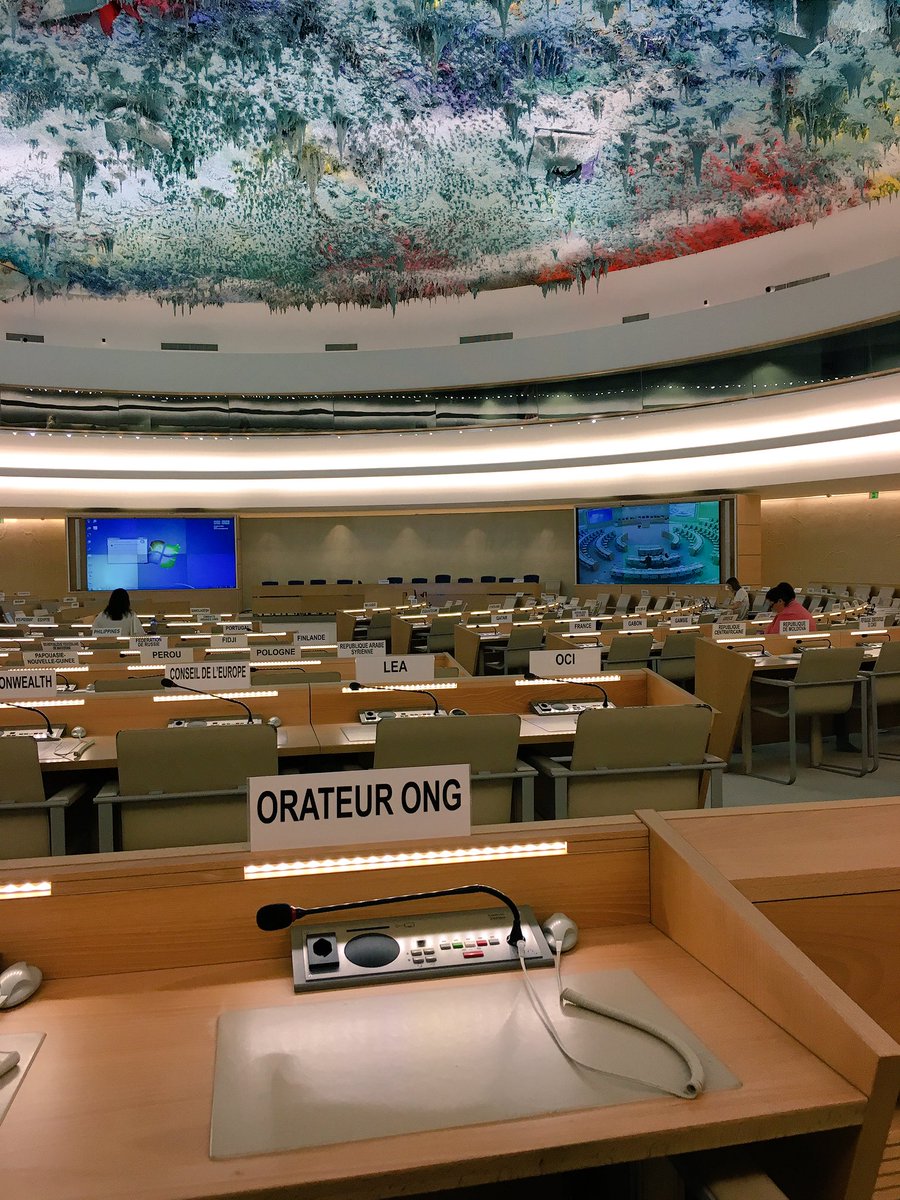On 9 June 2017, Jawad Fairooz, Director of Salam for Democracy and Human Rights, delivered an oral intervention on behalf of ADHRB and BIRD during the 35th session of the Human Rights Council’s Item 3 addressing the Working Group on Discrimination Against Women’s visit to Kuwait and the issues facing women around the GCC. Please continue reading for the full text of his intervention or click here for a PDF of his remarks.
Mr. President,
IDO and ADHRB, welcome the findings of the Working Group’s report following its recent country visit to Kuwait. We also take note that the wide range of conclusions and recommendations may easily apply to many other Gulf Cooperation Council countries in the region, and we encourage those governments to take heed of the Working Group’s recommendations.
In your Kuwait report, you highlighted a diverse spectrum of issues facing women in Kuwait, including citizens and non-citizens. Many of these issues, including discrimination against women under the law, unbalanced access to justice, and issues relating to male guardianship are indeed serious concerns in Kuwait, yet are mirrored in other GCC states.
Women in Saudi Arabia, the UAE, and Bahrain are subject to extensive restrictions that actively undermine gender equality. Like in Kuwait, Saudi men members exert control over their wives’ access to medical procedures and care.
Like the rest of the GCC, Kuwait maintain the kafala sponsorship system that forces many female migrant workers into domestic servitude. This arrangement also leaves them vulnerable to physical and sexual abuse, as investigations and prosecution rates for such crimes remain low.
The experts encouraged Kuwait to pass new legislation to promote independent women’s rights activists and women in civil society. Indeed this too must be amplified across the GCC to include activist Loujain al-Hathloul, who was arrested this week in Saudi Arabia; and to include Ebtisam al-Saegh, the Bahraini human rights defender who was physically, psychologically and sexually tortured because of her work.
In conclusion, we praise the Working Group country report for Kuwait, and ask the experts, what broader impact do you hope your recommendations will have given the interconnectivity of GCC governments?
Thank you.





